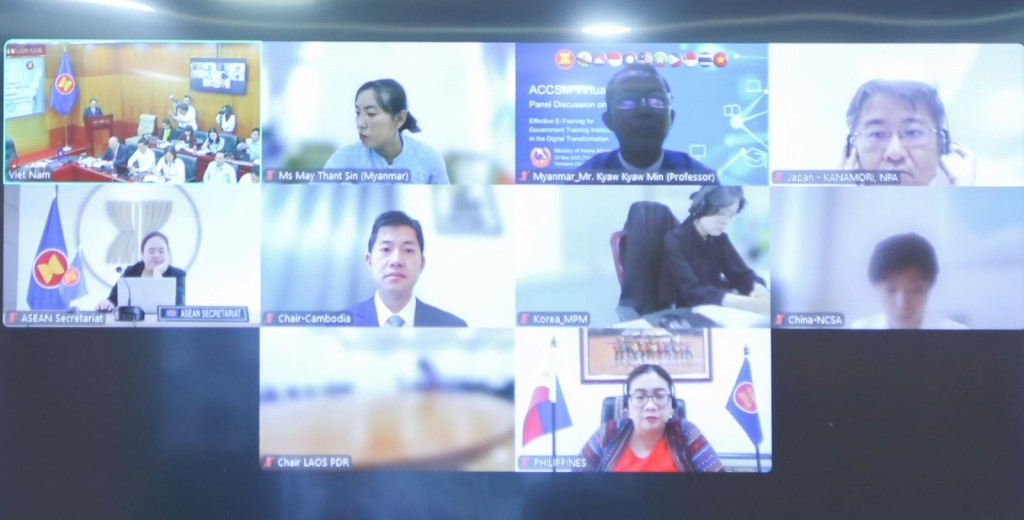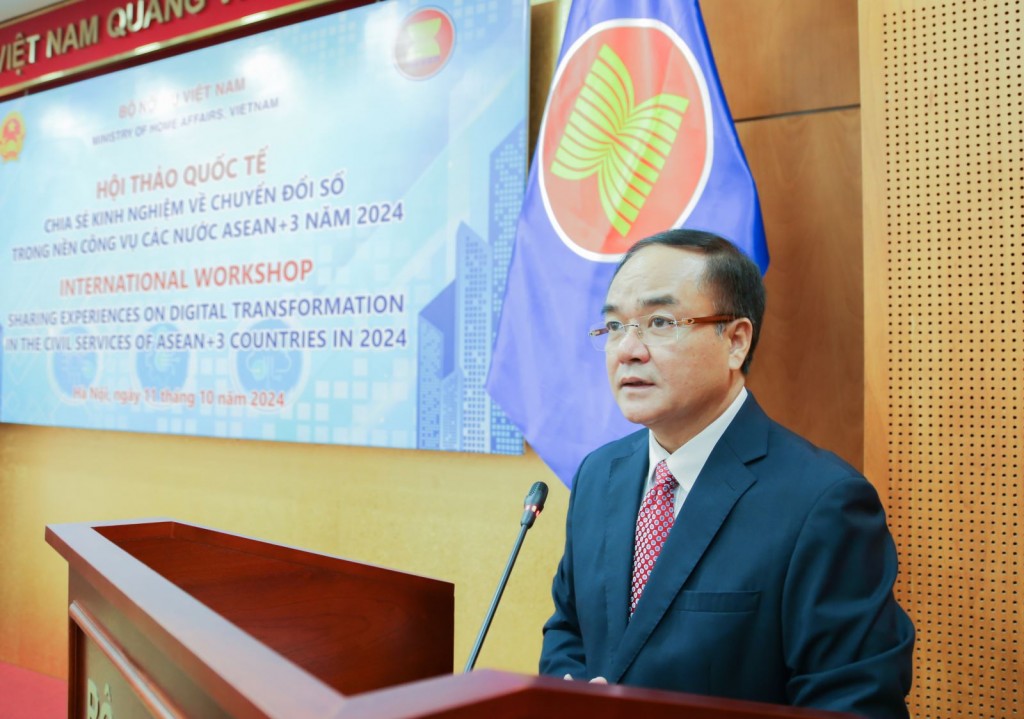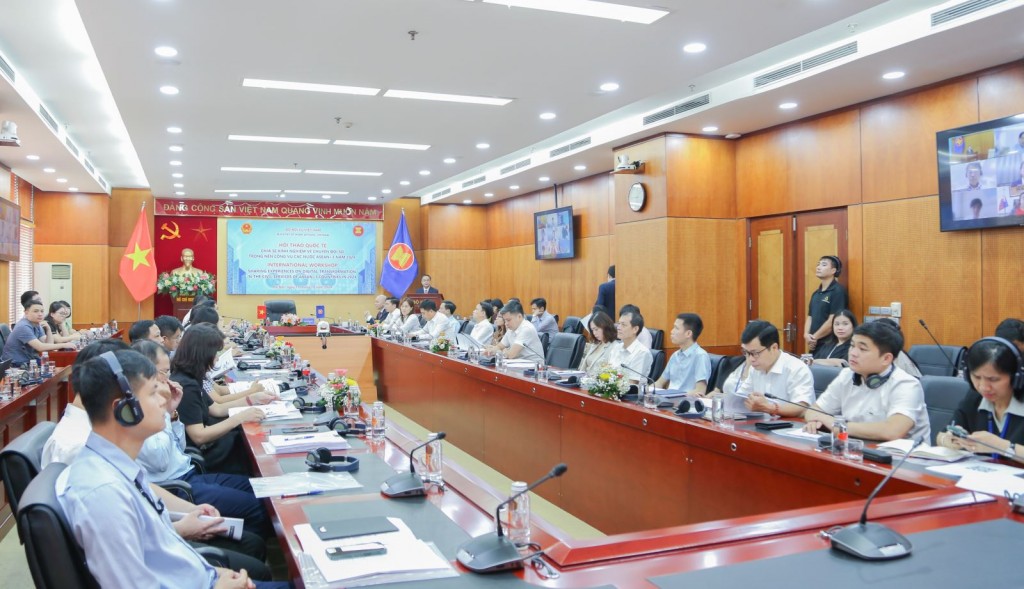On October 11, in Hanoi, the Ministry of Home Affairs (MoHA) held an international workshop titled “Sharing experiences on digital transformation in the civil services of ASEAN +3 countries in 2024”. The workshop was organized online, with the participation of 13 ASEAN+3 countries. Vice Minister of Home Affairs Vu Chien Thang chaired the workshop.
In his opening remarks, Vice Minister Vu Chien Thang stated that the workshop was part of the ACCSM+3 Work Plan for 2021-2025, initiated by Viet Nam’s Ministry of Home Affairs. The goal is to enhance the role of civil services in driving comprehensive reform programs aligned with the ASEAN Community Vision 2025, consistent with the approach of building a developmental, transparent, proactive government that serves the people. Additionally, the event encourages learning from ASEAN+3 countries on effective civil service management and attracting citizen participation.
Vice Minister Vu Chien Thang emphasized that the rapid development of new digital technologies is affecting all aspects of human society. Digital transformation, he noted, is the process of using data and digital technology to comprehensively change the way individuals and organizations live, work, and produce in a digital environment. Digital transformation is an inevitable trend for all countries, bringing benefits from micro to macro levels and having a profound impact on a global scale, affecting national governments, businesses, agencies, and individuals. However, digital transformation is multifaceted, complex, and filled with challenges. To achieve successful digital transformation, countries must cooperate, share, and learn from international experiences, as each country has its own strengths that can complement and support one another.
He emphasized that digital transformation in civil services is reshaping how public sector agencies operate and interact with citizens. Digital transformation in civil services is not only about technology but also about changing the culture, processes, and mindset of public sector agencies to better serve the people.
Viet Nam recognizes the importance of digital transformation in enhancing competitiveness and economic development. In 2020, the Prime Minister approved the “National Digital Transformation Program to 2025, with a Vision to 2030.” As a member of the ASEAN+3 Cooperation on Civil Service Matters (ACCSM+3), Viet Nam’s Ministry of Home Affairs has actively participated in and led initiatives within the ACCSM+3 Work Plan for 2021-2025.
He expressed hope that the workshop would enhance the role and creativity of ACCSM+3 in digital transformation in civil services, helping address national and regional social issues, improve the quality of life for citizens, and contribute to the successful implementation of the ACCSM+3 Work Plan for 2021-2025 and the goals of the ASEAN Socio-Cultural Community Vision 2025. He also emphasized the importance of the workshop as an opportunity to exchange and share visions, achievements, and lessons learned from ACCSM+3 countries regarding digital transformation in civil services. This step-by-step process aims to build and improve cooperation mechanisms in digital transformation to promote the implementation of digital transformation policies among ACCSM+3 members.
During the workshop, representatives from ASEAN+3 civil service sectors shared presentations on achievements, challenges, and lessons learned from digital transformation in building modern administrations, creating adaptable, responsive, and flexible public services in e-government, as well as lessons on building national databases on civil servants and public employees and personnel information management systems.







